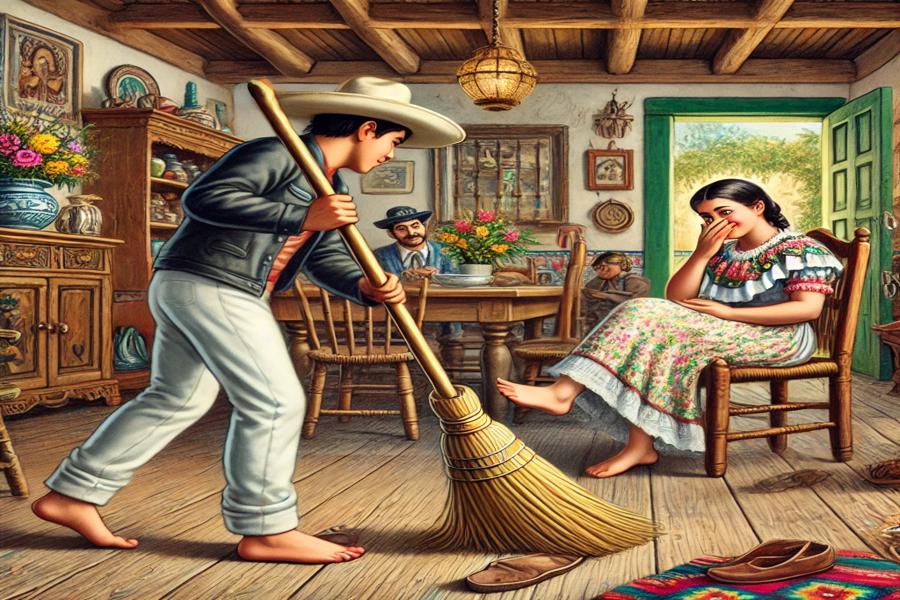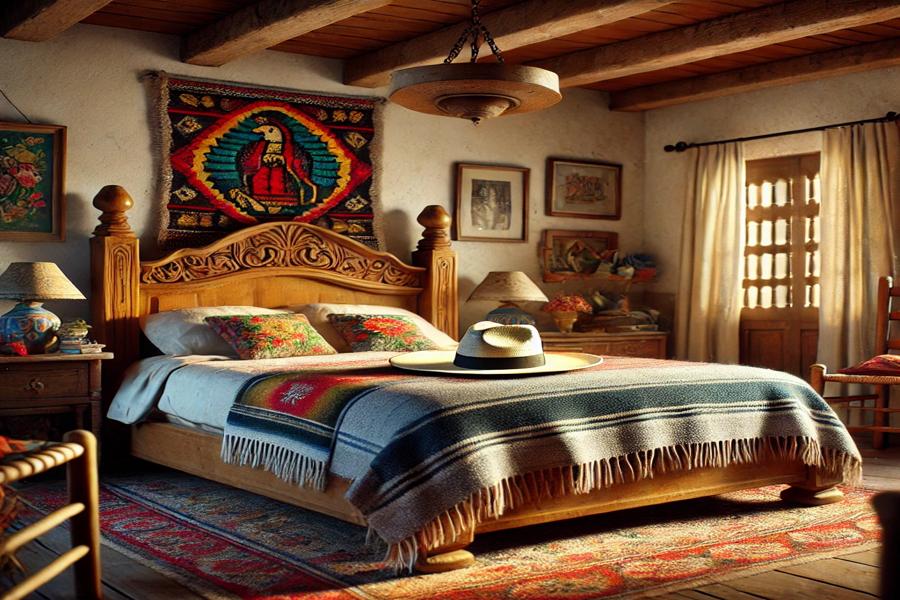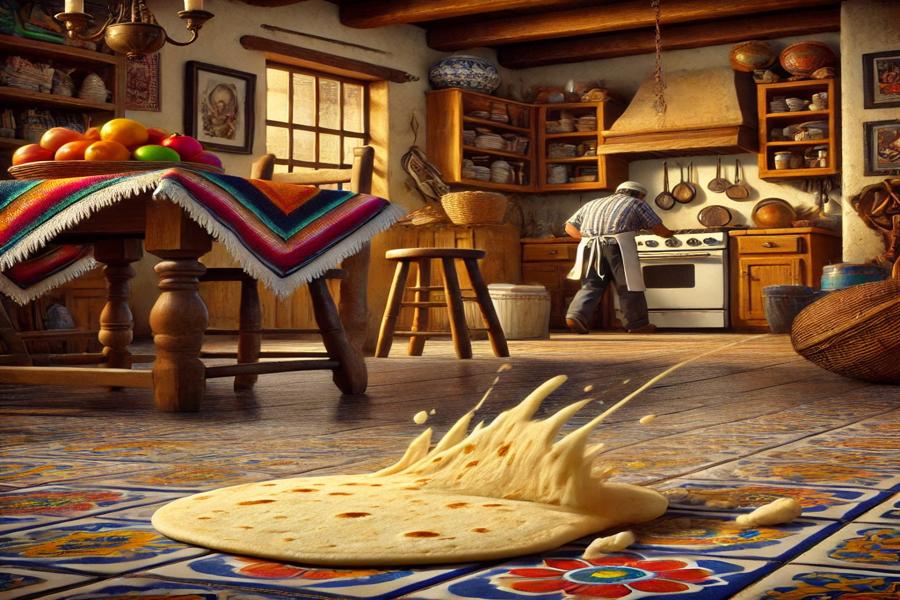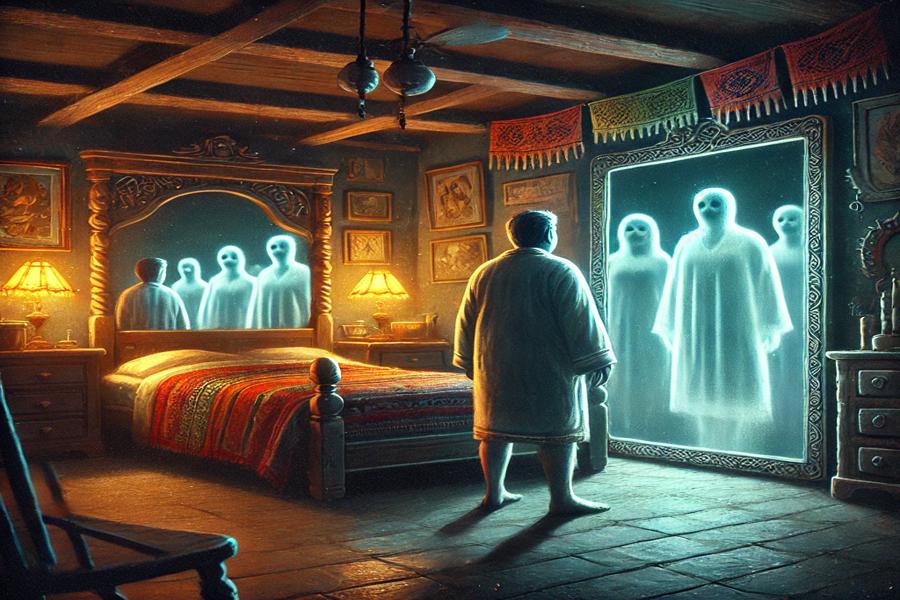Table of Contents
13 Mysterious Mexican Superstitions
Mexico is a country where ancient indigenous traditions, Catholic influences, and folklore come together to create a vibrant tapestry of superstitions that permeate everyday life. From beliefs rooted in the natural world to rituals designed to ward off misfortune, these superstitions reflect the country’s unique spiritual heritage. Whether tied to luck, protection, or the unseen forces that shape daily existence, these Mexican superstitions offer a glimpse into how people navigate the unknown. Here are 13 captivating examples that reveal Mexico’s deep connection to its mystical and cultural beliefs.
1. La Llorona: The Weeping Woman
One of Mexico’s most famous legends, La Llorona, tells the story of a woman who drowned her children in a fit of rage or despair and now wanders near rivers and lakes, weeping and searching for them. It is said that hearing her cries at night is an ominous sign, as La Llorona might mistake you for one of her children and drag you to a watery death. Many Mexicans avoid walking near bodies of water at night out of fear of encountering her.
2. The Evil Eye (Mal de Ojo)
In Mexico, “mal de ojo” or the evil eye is a common superstition, particularly concerning children. It is believed that a jealous gaze can cause physical harm, such as illness or bad luck. To protect against the evil eye, babies are often given a red bracelet or an amulet known as an “ojo de venado” (deer’s eye) to wear. This amulet is said to absorb the negative energy and prevent harm.
3. Sweeping Over Feet: A Curse for a Loveless Life
According to Mexican superstition, if someone sweeps the floor and accidentally sweeps over your feet, it means you will never get married. This belief is taken seriously in many households, and people take care to avoid touching anyone’s feet with the broom. If it happens by accident, the person whose feet were swept might quickly step on the broom as a counter-ritual to break the curse.

4. Day of the Dead (Día de los Muertos)
Día de los Muertos is one of Mexico’s most significant traditions, where the living honor the dead by creating altars, or “ofrendas,” decorated with flowers, candles, and foods of the deceased. It’s believed that during this time, the souls of the departed return to visit their families. The celebration is both reverent and festive, blending the sacred with the joyful remembrance of those who have passed away. Failing to properly honor the dead during this time is considered disrespectful and might invite bad luck or hauntings.
5. The Curse of the Owl (Lechuza)
In Mexican folklore, seeing a white owl, or “lechuza,” is considered a bad omen. It is believed that owls are witches in disguise or messengers of death. Hearing an owl’s call at night, especially near your home, is thought to predict imminent death or misfortune. To ward off the evil brought by the La lechuza, some Mexicans believe in cursing at it or throwing salt in the direction of its call.
6. Putting a Hat on the Bed: Invite Bad Luck
In Mexican superstition, placing a hat on a bed is bad luck. The origins of this belief are unclear, but it is thought that doing so can bring misfortune or illness. Some say it could be related to the idea that a hat on a bed is too close to death, as hats are often associated with funerals. To avoid inviting bad luck, Mexicans hang their hats on a hook or place them on a table instead.

7. Never Gift Scissors or Knives
Gifting someone scissors or knives in Mexico is believed to sever the relationship between the giver and the recipient. This superstition is taken seriously, and if one must give such a gift, it’s customary to include a coin that the recipient can give back to the giver as “payment,” thus preventing the bond from being cut.
8. Crossing a Black Cat’s Path
In Mexico, as in many other cultures, crossing paths with a black cat is considered bad luck. The superstition likely has roots in the association of black cats with witchcraft and evil spirits. To avoid bad luck after crossing paths with a black cat, some Mexicans might take a few steps backward or make a sign of the cross.
9. Dropping Tortillas: A Bad Omen
Tortillas are a staple food, and their preparation and handling are treated with respect. Dropping a tortilla is seen as a bad omen, particularly in rural areas. It is believed that dropping a tortilla could indicate that someone in the household will soon die or that the home is about to experience misfortune. As a remedy, some people will make the sign of the cross over the fallen tortilla before disposing of it.

10. Hearing a Dog Howl: A Sign of Death
In Mexican superstition, the howling of a dog, especially at night, is often interpreted as a sign of impending death. This belief may stem from the ancient Aztec association of dogs with death and the afterlife, where it was believed that dogs could guide souls to the underworld. To counteract the bad omen, some Mexicans will light a candle or pray when they hear a dog howl.
11. Never Pass Salt Hand to Hand
Passing salt directly from one person’s hand to another is believed to bring bad luck or cause a falling out between the two people. To avoid this, Mexicans typically place the salt shaker on the table so the other person can pick it up themselves. This superstition reflects the broader cultural emphasis on harmony and avoiding potential conflicts in relationships.
12. The Superstition of Mirrors at Night
Mexicans believe that looking into a mirror at night can attract spirits or bad luck. Some say that mirrors act as portals to the other side, and gazing into them at night, when the veil between worlds is thinner, might invite unwanted supernatural encounters. To avoid this, many cover mirrors at night or refrain from looking into them until morning.

13. Spilling Water on the Floor: A Cleansing Ritual
Spilling water on the floor, whether accidentally or on purpose, is sometimes seen as a way to cleanse a space of negative energy or spirits. In some parts of Mexico, after a loved one dies, water is spilled at the entrance of the house to help guide the soul to the afterlife and keep bad spirits at bay.
Conclusion
Mexican superstitions are a fascinating blend of indigenous beliefs, Catholicism, and folklore, reflecting a deep connection to the spiritual and supernatural realms. These beliefs, whether involving omens of death, protective rituals, or the importance of respecting the dead, continue to play a significant role in Mexican culture. As you explore these superstitions, you’ll discover a world where the mystical and the everyday coexist, offering a unique window into the rich and diverse heritage of Mexico.
